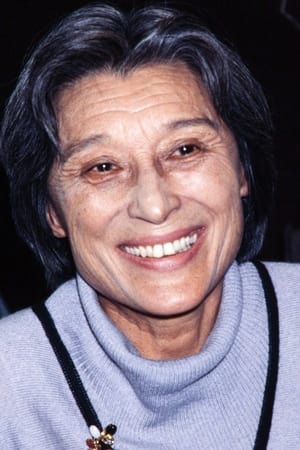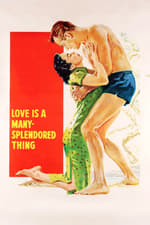Informations personnelles
Célèbre pour Écriture
Apparitions connues 4
Genre Femme
Date de naissance 12 septembre 1917
Date de décès 2 novembre 2012 (95 ans)
Lieu de naissance Xinyang, Henan Province, China
Alias
- Dr. Han Suyin
- Chou Kuanghu
- Rosalie Élisabeth Comber
Score de contenu
100
Superbe ! Cette fiche semble complète !
Connectez-vous afin de
signaler un problème.
Biographie
Rosalie Matilda Kuanghu Chou (Chinese: 周光瑚; 12 September 1917 or 1916 – 2 November 2012) was a Chinese-born Eurasian physician and author better known by her pen name Han Suyin (Chinese: 韓素音). She wrote in English and French on modern China, set her novels in East and Southeast Asia, and published autobiographical memoirs which covered the span of modern China. These writings gained her a reputation as an ardent and articulate supporter of the Chinese Communist Revolution. She lived in Lausanne, Switzerland, for many years until her death.
Han Suyin was born in Xinyang, Henan, China. Her father was a Belgian-educated Chinese engineer, Chou Wei (Chinese: 周煒; pinyin: Zhōu Wěi), of Hakka heritage, while her mother was Flemish.
She began work as a typist at Peking Union Medical College in 1931, not yet 15 years old. In 1933 she was admitted to Yenching University where she felt she was discriminated against as a Eurasian. In 1935 she went to Brussels to study medicine. In 1938 she returned to China, married Tang Pao-Huang (Chinese: 唐保璜), a Chinese Nationalist military officer, who was to become a general. She worked as a midwife in an American Christian mission hospital in Chengdu, Sichuan. Her first novel, Destination Chungking (1942), was based on her experiences during this period. In 1940, she and her husband adopted their daughter, Tang Yungmei.
In 1944 she went with her daughter to London, where her husband Pao had been posted two years earlier as military attaché, to continue her studies in medicine at the Royal Free Hospital. Pao was subsequently posted to Washington and later to the Manchurian front. In 1947, while she was still in London, her husband died in action during the Chinese Civil War.
She graduated MBBS (Bachelor of Medicine & Surgery) with Honours in 1948 and in 1949 went to Hong Kong to practise medicine at the Queen Mary Hospital. There she met and fell in love with Ian Morrison, a married Australian war correspondent based in Singapore, who was killed in Korea in 1950. She portrayed their relationship in the bestselling novel A Many-Splendoured Thing (Jonathan Cape, 1952) and the factual basis of their relationship is documented in her autobiography My House Has Two Doors (1980).
In 1952, she married Leon Comber, a British officer in the Malayan Special Branch, and went with him to Johore, Malaya (present-day Malaysia), where she worked in the Johor Bahru General Hospital and opened a clinic in Johor Bahru and Upper Pickering Street, Singapore. In 1953, she adopted another daughter, Chew Hui-Im (Hueiying), in Singapore.
In 1955, Han contributed efforts to the establishment of Nanyang University in Singapore. Specifically, she served as physician to the institution, having refused an offer to teach literature. Chinese writer Lin Yutang, first president of the university, had recruited her for the latter field, but she declined, indicating her desire "to make a new Asian literature, not teach Dickens". ...
Source: Article "Han Suyin" from Wikipedia in English, licensed under CC-BY-SA 3.0.
Rosalie Matilda Kuanghu Chou (Chinese: 周光瑚; 12 September 1917 or 1916 – 2 November 2012) was a Chinese-born Eurasian physician and author better known by her pen name Han Suyin (Chinese: 韓素音). She wrote in English and French on modern China, set her novels in East and Southeast Asia, and published autobiographical memoirs which covered the span of modern China. These writings gained her a reputation as an ardent and articulate supporter of the Chinese Communist Revolution. She lived in Lausanne, Switzerland, for many years until her death.
Han Suyin was born in Xinyang, Henan, China. Her father was a Belgian-educated Chinese engineer, Chou Wei (Chinese: 周煒; pinyin: Zhōu Wěi), of Hakka heritage, while her mother was Flemish.
She began work as a typist at Peking Union Medical College in 1931, not yet 15 years old. In 1933 she was admitted to Yenching University where she felt she was discriminated against as a Eurasian. In 1935 she went to Brussels to study medicine. In 1938 she returned to China, married Tang Pao-Huang (Chinese: 唐保璜), a Chinese Nationalist military officer, who was to become a general. She worked as a midwife in an American Christian mission hospital in Chengdu, Sichuan. Her first novel, Destination Chungking (1942), was based on her experiences during this period. In 1940, she and her husband adopted their daughter, Tang Yungmei.
In 1944 she went with her daughter to London, where her husband Pao had been posted two years earlier as military attaché, to continue her studies in medicine at the Royal Free Hospital. Pao was subsequently posted to Washington and later to the Manchurian front. In 1947, while she was still in London, her husband died in action during the Chinese Civil War.
She graduated MBBS (Bachelor of Medicine & Surgery) with Honours in 1948 and in 1949 went to Hong Kong to practise medicine at the Queen Mary Hospital. There she met and fell in love with Ian Morrison, a married Australian war correspondent based in Singapore, who was killed in Korea in 1950. She portrayed their relationship in the bestselling novel A Many-Splendoured Thing (Jonathan Cape, 1952) and the factual basis of their relationship is documented in her autobiography My House Has Two Doors (1980).
In 1952, she married Leon Comber, a British officer in the Malayan Special Branch, and went with him to Johore, Malaya (present-day Malaysia), where she worked in the Johor Bahru General Hospital and opened a clinic in Johor Bahru and Upper Pickering Street, Singapore. In 1953, she adopted another daughter, Chew Hui-Im (Hueiying), in Singapore.
In 1955, Han contributed efforts to the establishment of Nanyang University in Singapore. Specifically, she served as physician to the institution, having refused an offer to teach literature. Chinese writer Lin Yutang, first president of the university, had recruited her for the latter field, but she declined, indicating her desire "to make a new Asian literature, not teach Dickens". ...
Source: Article "Han Suyin" from Wikipedia in English, licensed under CC-BY-SA 3.0.
Célèbre pour
Écriture
|
Interprétation
|
|||
|
|||
|

